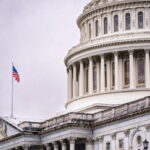There’s still a lot we don’t know about the FBI’s investigation of the 2016 Trump presidential campaign. What we do know, however, should give all of us pause. False information was used to secure the ability to employ electronic surveillance on at least one relatively junior campaign official which may have created a chain of information, obtained surreptitiously, leading to the candidate himself.
We hope the investigation currently underway into what happened, why and who allowed it led by U.S. Attorney John Durham will shed more light on the situation. Until it does, though, we’re doubtful we’re ever really going to know the truth. Too many powerful people, in and out of government, are involved for us to believe the facts will ever become known.
Meanwhile, amid all this, Congress has been called upon to reauthorize and reform the Foreign Intelligence Surveillance Act under whose strictures, it must be recalled, the wiretaps and other eavesdropping was deemed appropriate. President Trump has suggested he’d veto any legislation that did not go far enough, an intention we applaud, and urge the Congress to listen to him.
The FISA process, which was established in the name of conducting parts of the war on terror in secret, has been badly abused by those involved in it. It was written in such a way as to define the authority for making decisions but, in practice, has seen responsibility for bad calls and errors diffused between federal judges on temporary assignment, the U.S. intelligence community, career officials inside the U.S. Department of Justice, and political appointees serving at the pleasure of the president. No one person, no one agency is, under current law, responsible if things go off the rails as they apparently were allowed to do while the Trump campaign was under investigation thanks to an opposition research document compiled by an ex-British spy paid for by a law firm working for the Clinton campaign.
What Congress has produced thus far does not go far enough. Indeed, it might be better to scrap the law entirely and hold hearings in open court than to continue with the secret process that now allows just about everyone involved to escape damage save for those wrongfully surveilled. The current process is more like a star chamber than a court of law.
Some will say the reforms proposed will fix the problems and that the FISA process is still needed to protect American lives and property here and overseas. That, to use an antiquated phrase, is bushwa. What FISA does violate is the Fourth Amendment’s protection against unreasonable search and seizure, and it violates the rights of people to be secure in their homes and papers and effects which, one might argue in the 21st century includes their electronic communications.
Obtaining secret warrants based on secret evidence isn’t enough — especially when one considers how badly the process was abused in the matter of Carter Page and who knows how many other Trump campaign officials and supporters. Sen. Rand Paul, Kentucky Republican, who has a discerning taste as to what does and what does not impinge on our liberties, tweeted that none of the so-called reforms “prevent secret FISA court from abusing the rights of Americans” and that none of them would, at some future date, “prevent a President of either party from a politically motivated investigation.”
One would hope cooler heads will be allowed to prevail. There’s a need to change the process, something the journalists who might find themselves caught up in it someday should understand. House Intelligence Committee Chairman Adam Schiff, California Democrat, was able to get sensitive phone records just by asking for them — which is something Congress also needs to address. Imagine how far he might have gotten if he’d been allowed to conduct that whole campaign in secret so long as the judges on the FISA Court were willing to go along.
One place to start would be the addition of a probable cause standard to any warrant application. A second good idea would be to adopt as law what Attorney General William Barr has already done as a matter of policy, which is to require the top official at the U.S. Department of Justice to sign off on anything involving a major political figure like an opposition party presidential candidate.
That’s only the beginning. There are, to be sure, real threats to the American republic coming from overseas. Let’s not add to them by continuing to allow the threats to our liberty contained in the FISA law as it exists to add to them anymore.
© Copyright (c) 2020 News World Communications, Inc.
—-
This content is published through a licensing agreement with Acquire Media using its NewsEdge technology.



















Recent Comments